How China Broke from David Rockefeller’s Slave Labor Agenda
TRANSCEND MEMBERS, 30 Sep 2024
Matthew Ehret Insights – TRANSCEND Media Service
25 Sep 2024 – Recently, I wrote an article titled ‘BRICS vs WEF: The Clash of two Green Paradigms,’ where I examined the nature of the two diametrically opposing concepts of “sustainability” clashing between the anti-growth, closed system feudal technocracy on the one hand, and the pro-growth, open system sovereign nation state coalition on the other.
How did this schism of paradigms between the unipolar vs. multipolar systems emerge, and how can we, as patriots, navigate through the current storm using the knowledge of this fight to guide us?
In this segment, I will continue to add a depth and nuance to the too-often oversimplified historical narratives shaping our understanding of the past, present and future in order to avoid embracing traps that will lead us to support World War 3. We will do this by evaluating the role of Henry Kissinger and how the Trilateral Commission’s designs for China came undone.
Kissinger Sides with Churchill over FDR at Chatham House
In order to properly understand Kissinger’s strategic thinking and his design for both China and the USA, starting with his efforts to arrange the “opening up” of China in 1972, and how China broke from its assigned script, it is useful to review a speech delivered at London’s Chatham House on May 10, 1982 titled “Reflections on a Partnership: British and American Attitudes to Postwar Foreign Policy,” where Kissinger stated:
“All accounts of the Anglo-American alliance during the Second World War and in the early postwar period draw attention to the significant differences in philosophy between Franklin Roosevelt and Winston Churchill reflecting our different national histories…
Many American leaders condemned Churchill as needlessly obsessed with power politics, too rigidly anti-Soviet, too colonialist in his attitude to what is now called the Third World, and too little interested in building the fundamentally new international order towards which American idealism has always tended. The British undoubtedly saw the Americans as naive, moralistic, and evading responsibility for helping secure the global equilibrium. The dispute was resolved according to American preferences- in my view, to the detriment of postwar security.”
Kissinger’s support for Churchill’s worldview speaks volumes when one holds firmly in mind the ambitions FDR had in dismantling systems of empire under a US-Russia-China alliance that was meant to drag Britain into the modern age, even if it meant kicking and screaming.
The Division of the World into Producers and Consumers
Since the US dollar was taken off the gold reserve system in 1971, a new age of “post-industrialism” was unleashed onto an increasingly globalized world.
Two leading Malthusians then managing the dim-witted Presidency of Richard Nixon were instrumental in this financial tsunami: Director of the Office of Budget Management George Schultz, and Secretary of State Henry Kissinger.
The same year that the dollar would be broken off the gold reserve system, Kissinger’s protégé Klaus Schwab was assigned to launch a new organization in Switzerland to coordinate the new managerial elite in the new “post-industrial age” modelled on the Bilderberg Group’s annual meetings that had already been underway since 1954. Another organization created to manage this period of transformation was dubbed ‘The Trilateral Commission’.
Co-founded by Chase Manhattan bank president David Rockefeller, Henry Kissinger, George Schultz and Zbigniew Brzezinski, the manifesto for this group was outlined by Brzezinski in his 1970 book ‘Between Two Ages: America’s Role in the Technetronic Era’.
In this manifesto, Brezinski wrote:
“The technetronic era involves the gradual appearance of a more controlled society. Such a society would be dominated by an elite, unrestrained by traditional values. Soon it will be possible to assert almost continuous surveillance over every citizen and maintain up-to-date complete files containing even the most personal information about the citizen. These files will be subject to instantaneous retrieval by the authorities.”
Brzezinski continued his dystopic vision saying:
“The nation-state as a fundamental unit of man’s organized life has ceased to be the principal creative force: International banks and multi-national corporations are acting and planning in terms that are far in advance of the political concepts of the nation-state”.
If you were thinking “hey this sounds a lot like Klaus Schwab’s concept of ‘stakeholder capitalism’ first unveiled at Davos in 1973, then you would be on to something.
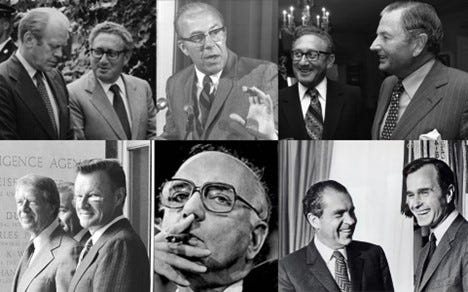
Under The Trilateral Commission’s guiding hand, humanity was given a new type of system, which presumed that both our nature and the cause of value itself were located in the act of consuming—at least, for citizens of the west.
The old idea that our nature was creative, and that our wealth was tied to producing, was assumed to be an obsolete thing of the past… a relic of a dirty old industrial age.
Under the new post-1971 operating system, we were told that the world would now be divided among producers and consumers.
The “have-not producers” would provide the cheap labor, which first world consumers would increasingly rely on for the creation of goods they used to make for themselves. “First world” nations were told that according to the new post-industrial rules of de-regulation and “shareholder-driven” market economics, that they should export their heavy industry, machine tools and other productive sectors abroad as they transitioned into “white collar” post-industrial consumer societies. The longer this outsourcing of industries went on, the less western nations found themselves capable of sustaining their own citizenries, building their own infrastructure or determining their own economic destinies.
In place of full spectrum economies that once saw over 40% of North America’s labor force employed in manufacturing, a new addiction to “buying cheap stuff” began, and a “service economies” took over like a cancer.
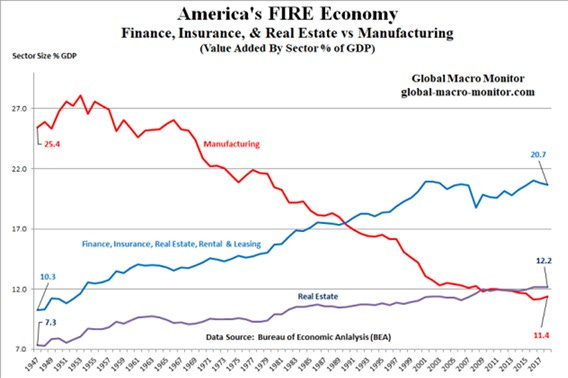
To make matters worse, the many newly independent nations struggling to liberate themselves from colonialism were told that they would have to abandon their dreams of development, since those goals would render the formula of a producer-consumer stratified society impossible to create.
Those leaders resisting this edict would face assassination or CIA overthrow. For the leaders who adapted to the new rules, they would soon become tools of the new age of “Economic Hitmen”.
China and the West: Kissinger’s Real Agenda
By the time Deng Xiaoping announced the “opening up” of China in 1978, Kissinger had already managed the economic paradigm shift of 1971, and orchestrated the artificial “oil shock therapy” of 1973, which set the stage for a new tool of colonial conquest under the guise of the petro-dollar[1].
Kissinger’s role as a neo-Malthusian was known to all, as his infamous National Security Study Memorandum 200 (NSSM-200) of 1974 had already transformed American foreign policy from pro-development to pro-population reduction, with the assumption that the computer models used in the Club of Rome’s Limits to Growth (1972) were somehow based in reality despite their total rejection of creative reason and technological progress.
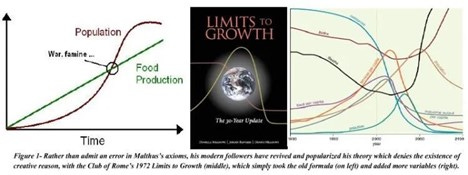
Among the top remedies to population growth, NSSM-200 listed birth control and the withholding of food. Kissinger asked: “is the U.S. prepared to accept food rationing to help people who can’t/won’t control their population growth?”
Kissinger’s report didn’t mince words:
“The U.S. economy will require large and increasing amounts of minerals from abroad, especially from less developed countries. That fact gives the U.S. enhanced interest in the political, economic, and social stability of the supplying countries. Wherever a lessening of population pressures through reduced birth rates can increase the prospects for such stability, population policy becomes relevant to resource supplies and to the economic interests of the United States…. Although population pressure is obviously not the only factor involved, these types of frustrations are much less likely under conditions of slow or zero population growth.”
Population Control and the Club of Rome in China
While many are quick to look upon China’s disastrous one child policy that was launched in 1979 as a purely evil Chinese Communist Party program, the truth is located far outside this oversimplified belief when one considers:
1) The top down agenda imposed onto a weakened China from powerful external forces outlined above and
2) The reality that China’s one child policy was itself effected by the Club of Rome.
The Club of Rome was an influential neo-Malthusian think tank founded by a nest of western oligarchs led by David Rockefeller, Giovanni Agnelli (director of Rockefeller’s Chase Manhattan Bank and soon co-founder of the Trilateral Commission), Agnelli’s Fiat Company executive Aurelio Peccei, and The British Empire’s science secretariate director and NATO advisor, Sir Alexander King.
As I laid out in a recent essay ‘The Club of Rome and the Rise of the Predictive Programming Mafia’, this organization was soon embedded into the World Economic Forum during a 1973 Davos Summit sponsored by Prince Bernhardt himself. It was at this event that the Club’s Limits to Growth Computer models were introduced to the world in force, which professed to advance the thesis that global population levels would need to be managed scientifically, utilizing advanced computer models as a replacement for “obsolete” practices in human statecraft.
According to researcher Robert Zubrin, Club of Rome devotee and Soviet trained cyberneticist Song Jian immediately translated the Club of Rome’s Limits to Growth into mandarin, and immediately used its linear models to compute the trend in population, pollution and resource loss over the course of a century, concluding that China’s optimal population (aka: “Carrying Capacity”) to be on the order of 650-700 million (nearly 300 million fewer than the total population of his own time).
As Cambridge researcher Julian Gewertz noted in his 2019 study ‘Futurists of Beijing’, working as head of China’s State Science and Technology Commission, Song interfaced closely with a puppet of George Soros named Zhao Ziyang to keep China’s science policy thinking tied to the Club of Rome’s closed system paradigm.
With these facts in mind, it is clear that Henry Kissinger never saw China as a true ally, but merely as a zone of abundant cheap labor, which would feed cheap goods to the now post-industrial west under their new dystopic producer-consumer world order.
Under Kissinger’s logic, China would receive just enough money to sustain a static existence, but would never be able to stand on its own two feet.
The Battle over Four Modernizations
Unbeknownst to Kissinger, China’s leaders under the direction of Premier Zhou Enlai, and his disciple Deng Xiaoping had a much longer-term strategic perspective than their western partners imagined.
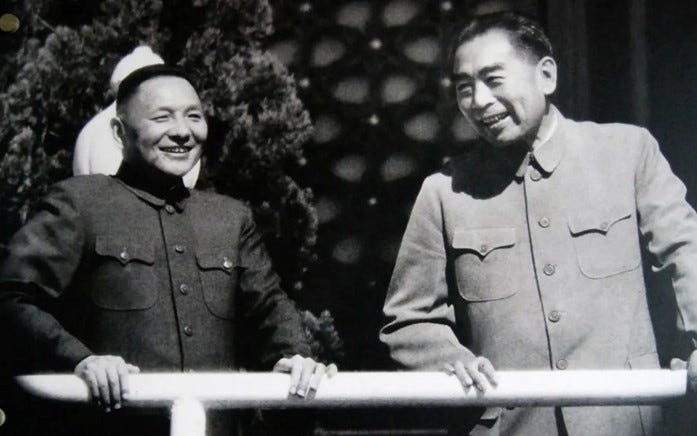
While receiving much needed revenue from foreign exports, China began to slowly create the foundations for a genuine renaissance, which would be made possible by slowly learning the skills, leapfrogging technologies and acquiring means of production which the west had once pioneered.
Zhou Enlai had first enunciated this visionary program as early as 1963 under his Four Modernizations mandate (Industrial, agricultural, national defense and science and technology) and then restated this program in January 1976, weeks before his death.
This program manifested itself in the July 6, 1978 State Council Forum on the “Principles to Guide the Four Modernizations,” informed by the findings of international exploratory missions conducted by economist Gu Mu’s delegations around various advanced world economies (Japan, Hong Kong, Western Europe). The findings of Gu Mu’s reports laid out the concrete pathways for full spectrum economic sovereignty, with a focus on cultivating the cognitive creative powers of a new generation of scientists that would drive the non-linear breakthroughs needed for China to ultimately break free of the rules of closed-system economics, which technocrats like Kissinger wished the world adhere to.
Deng Xiaoping broke from the radical Marxism/Dialectic Materialism ideology prevalent among the intelligentsia by redefining “labor” from purely material constraints, and elevating the concept rightfully to the higher domain of mind saying:
“We should select several thousand of our most qualified personnel within the scientific and technological establishment and create conditions that will allow them to devote their undivided attention to research. Those who have financial difficulties should be given allowances and subsidies… we must create within the party an atmosphere of respect for knowledge and respect for trained personnel. The erroneous attitude of not respecting intellectuals must be opposed. All work. Be it mental or manual, is labor.”[2]
Over the course of the coming decades, China learned, and like any student, copied, reverse engineered and reconstructed western techniques, as it slowly generated capacities that ultimately allowed them to press on the limits of human knowledge, outpacing all western models.
Scientific and technological progress became the driving force of its entire economy, and by 1986, the “863 Project for Research and Development” was announced which focused on areas of space, lasers, energy, biotechnology, new materials, automation and information technology. This project became the driver for creative innovation guided by the National Science Foundation, and was upgraded to the 973 Basic Research Program in 2009 to:
“1) support multidisciplinary and fundamental research of relevance to national development; 2) Promote frontline basic research; 3) Support the cultivation of scientific talent capable of original research; and 4) Build high-quality interdisciplinary research centers.”
Of course, the hand of the Trilateral Commission was also felt throughout this period, attempting to keep China in a cage of sweat shop dependency on western markets.
Historian Michael Billington has noted that the Trilateral Commission directly organized a conference in Beijing in 1981 in order to keep China locked into this feudal model, writing:
“In May 1981, David Rockefeller chaired an international conference of the Trilateral Commission held in Beijing. At that meeting, Chase Manhattan Bank’s chief, William C. Butcher, told the Xinhua news agency that China’s reform would only succeed if they rejected large industry or great development projects in favor of labor-intensive production. Heavy industry and infrastructure, he said, “take two great things, a great deal of energy and a great deal of money, neither of which are abundant in China.”
Under the logic of the Trilateral Commission and Soros operatives embedded within China’s government, the “Four Modernizations” was meant to be guided by those priorities that would only benefit a master slave society under technocratic management.
George Soros and China’s Gorbachev
Figures like George Soros’ operative Zhao Ziyang even became Premier (1980-1987,) and then Chairman of the Communist Party of China (1987-1989,) where he was celebrated by western unipolarists as “China’s Gorbachev”.
Under Zhao’s lead, transhumanists like Alvin Toffler (author of ‘The Third Wave’) were brought in to China while millions of young impressionable Chinese economists were given western scholarships and indoctrinated into the ways of free market economics in Harvard, Yale and Oxford.
Speaking at an October 9, 1983 conference in Beijing, Zhao outlined his perverse concept of the “four modernizations,” which diverged dramatically from the sort of concept envisioned by Zhou Enlai, Deng or other nationalists when he stated:
“Whether we call it the Fourth Industrial Revolution or call it the Third Wave, [these writers] all believe that Western countries in the 1950s and 1960s reached a high degree of industrialization and are now moving to an information society… For us and for the future of the Four Modernizations, this is both an opportunity and a challenge.”
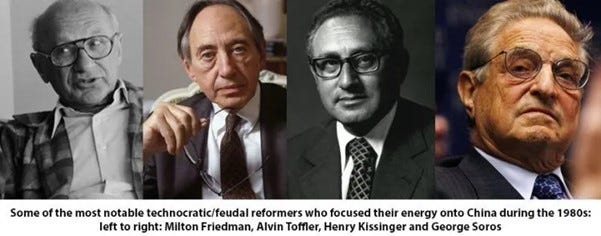
Milton Friedman himself made several tours of China during the 1980s in order to train this new generation of technocratic managerial class, and George Soros himself managed to establish two Open Society affiliated think tanks in China, with one of them managed directly by Zhao Ziyang’s right hand men, Chen Yizi and Bao Tung.
Writing in his 1990 ‘Underwriting Democracy’, George Soros himself described this process in China, saying:
“I discussed the concept of a foundation with Chen Yizi, head of the Institute for Economic Reform. Subsequently, I went to China with Liang Heng, who became my personal representative, and set up a foundation on the Hungarian model with Chen Yizi’s institute as my partner. Bao Tung, Communist party General Secretary Zhao Ziyang’s reform- minded principal secretary, cut through the red tape and approved the foundation on the spot.”
In 1986, Zhao sponsored the first of two new Soros-run think tanks with the “Fund for the Reform and Opening Up of China,” using a million-dollar grant by the speculator, followed by the Institute for Economic and Structural Reform (IESR) co-run by Chen Yizi. The IESR interfaced closely with the National Endowment for Democracy (aka: CIA) that set up two offices in China in 1988.
Fortunately, the CIA effort to carry out a color revolution in 1989, which would have seen Zhao become a Chinese free market dictator fell apart, as Zhao was arrested, along with hundreds of Soros assets, and Soros was promptly banned from China.
The First Wave Purge of China’s Deep State
Many of those violent operatives who were used to turn a peaceful student protest into a chaotic regime change were promptly funnelled out of mainland China during Operation Yellowbird. With the vast assistance of Hong Kong triads, MI6 and CIA operatives in Hong Kong established a rat line to the USA where many of these violent anarchists received luxurious rewards and scholarships at Ivy league universities in the USA and Canada forming what the Washington Post’s Gavin Hewitt described as “the nucleus of a democracy movement in exile”.
China was still to remain weak for a number of years, but at least this first of several major purges of fifth columnists that was to ensure over the next 30 years gave the Chinese leadership room to breath and slowly build up their technological base and economic power as a sovereign nation.[3]
Throughout the 1990s, the wounds induced by the Trilateral Commission-steered 1980s were beginning to heal, and the slow effects of modernization were beginning to be felt. As a bloodied China began to start standing on her own two feet, Beijing launched conferences in 1996 for a New Silk Road, reviving the ancient trade routes connecting China to Europe and Africa through the Middle East and Caucasus.
One of the few western participants at these Chinese events was the Schiller Institute, whose founders delivered a full day seminar in 1997, describing the program that would finally come back to life in 2013 when Xi Jinping made it the focus of China’s foreign policy outlook under the Belt and Road Initiative.
At this moment, the Belt and Road Initiative has signed onto MOUs with over 140 nations and provides the backbone and spirit of the anti-Malthusian Multipolar Alliance, which represents a very different concept of governance, economics, law and self-interest than anything coming out of Rules Based Orderists dancing around Davos.
But the question now arises: Why did this program wait until 2013 to blossom onto the world stage when obvious momentum was already in motion in 1997?
George Soros and the Attack on the Asian Markets
From May 1997, George Soros’ targeting of the Southeast Asian “Tiger economies” of Myanmar, Thailand, Indonesia, Philippines, Laos, and Malaysia with speculative short sales of their local currencies resulted in months of vast anarchy across all of Asia and the world more broadly. Currencies collapsed from 10-80% over the next 8 months, and took many years to begin to recover.
Malaysia’s Mahathir Mohammed was brave enough to call out Soros’ economic warfare and did much to help his nation weather the storm by imposing capital controls to maintain some semblance of stability, calling out the speculator, saying: “as much as people who produce and distribute drugs are criminals, because they destroy nations, the people who undermine the economies of poor nations are too.” Chinese President Jiang Zemin followed suit calling Soros “a financial sniper,” and stated he would not let the speculator enter Chinese markets.
Analyst Michael Billington astutely wrote in his August 1997 EIR report:
“The ultimate target is China. The British are particularly worried about the increasingly close collaboration between China and the ASEAN nations, which are being integrated into the massive regional and continental development projects initiated by China under the umbrella of the Eurasian Continental Land-Bridge program. Such real development policies offer the alternative to the cheap-labor, colonial-style export industries of the “globalization” model- the model that has led to the financial bubbles now bursting worldwide.”
The Tumultuous Years of 1997-2013
With the advent of the collapse of Long-Term Capital Management (whose meltdown nearly took down the world economy in 1999 if not bailed out by central banks), followed by the Y2K/tech bubble explosion of 2000, the world markets nearly collapsed on several occasions.
9/11 unleashed a new era of warfare, which deflected attention from the rot of the financial system while derivatives were deregulated, and ‘Too Big To Fail’ banking formed in short order, growing far beyond the powers of any nation state to rein in.
Under this period of destabilization, wars, terrorism and easy money speculation, China and its Eurasian allies moved slower to rebuild the physical basis of their existence, with the creation of the Shanghai Cooperation Organization, long term planning, and a slow but steady focus on real (vs speculative) economic activity. The fact that China was among the only nations of the world to keep national controls over their central bank and maintain Glass-Steagall bank separation were not lost on the enemies of humanity yearning for a bankers’ dictatorship.
This process continued until it became evident that the western unipolar agenda would stop at nothing, including nuclear war in order to assure the total subservience of all nation states, with Obama unveiling his Asia Pivot (air-sea battle) encirclement of China along with the Trans-Pacific Partnership (TPP) economic attack on China[4].
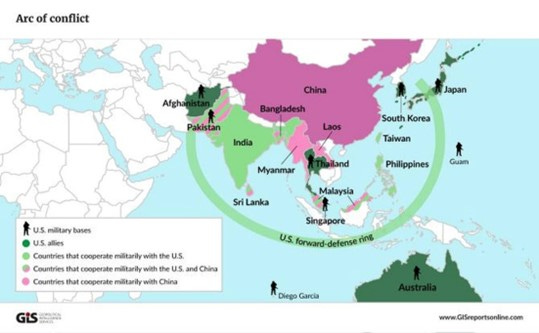
The veil was now lifted to the true ugly face behind the liberal fascist smiles, and it became clear that the full spectrum dominance military encirclement of Russia’s perimeter was being fully extended to China’s perimeter as well.
The Revival of the New Silk Road, 2013 – Present
It was in the face of this existential threat that Xi Jinping emerged as the new leader of China and a historic crackdown of party corruption on all levels Federal, Provincial and Municipal was begun in force[5] while Xi’s 2013 announcement of the Belt and Road Initiative in Kazakhstan revived the New Silk Road/Eurasian land bridge policy of 15 years earlier.
This strategy quickly moved from an idea into a powerful reality, as China’s state banking system (one of the only to have avoided privatization over the past century) began unleashing large scale credit for infrastructure both within its own borders, and globally to a scale never before seen in human history.
,The importance of China’s national banks cannot be overstated. Among the most important of China’s robust state banking system are the following four categories:
1. Policy Banks (Agricultural Development Bank of China (ADBC), China Development Bank (CDB), Export-Import Bank of China (CHEXIM))
2. State Owned Banks (Agricultural Bank of China (ABC), Bank of China (BOC), China Construction Bank (CCB), Industrial and Commercial Bank of China (ICBC)
3. State Owned Funds (China Investment Corporation (CIC), Silk Road Fund (SRF)
4. International Financing Institutions (Asian Development Bank (ADB) Asian Infrastructure Investment Bank (AIIB), New Development Bank (NDB).
Although evidence that fifth columnists who have avoided being purged by Xi Jinping’s anti-corruption program continue to operate within some of these institutions, overall these banks have given China an edge lacking in the speculative, debt driven west where nations are forced to rely upon a usurious privatized Central Banking system to shape monetary policy.
With these powers of credit emissions, China has been permitted to unleash over $4 trillion of loans and direct investments into the New Silk Road projects internationally, while creating literally hundreds of advanced new cities, which the western states haven’t done in nearly a century.
Within the space of less than 10 years, China has become a global leader in tunneling technology, and has even sold its technology to governments of Europe. New Chinese-built designs for bridge building machines have given China the means of producing record breaking bridges at a fraction of the cost of the west and quicker. Over 34,000 km of high speed rail has been built in only 20 years, while North America has barely 200 km, and China has become a world leader in dam construction, having built 4 of the 10 largest hydroelectric power stations in the world.
While the Malthusian technocrats managing the western Green New Deal have forbidden any advanced form of scientific or technological progress to be constructed during the past half century in favor of maintaining systems of scarcity and war, China has instead become the world leader of megaprojects vital for her populations’ long-term survival.
It is here that the battle over definitions of words like “Fourth Industrial Revolution”, “UN Charter”, “Sustainability”, or “New Economic Order” is taking place. Although representatives of either system will use similar words, the MEANING, PURPOSE, INTENTION and DESIGN are provably incompatible, and only literalists and nominalists who don’t know how to think about causality or real world dynamics would be confused by that.
Footnotes:
[1] As William Engdahl demonstrated in his 1992 Century of Oil, then Secretary of State Henry Kissinger had more of a role in manufacturing this crisis from scratch by keeping hundreds of tankers replete with petrol from being unloaded in the USA and facilitating the 400% increase with the assistance of several high level oil ministers in the Middle East beholden to Kissinger. In recent years, Saudi Arabia’s former OPEC minister at the time corroborated Engdahl’s research stating: “I am 100 per cent sure that the Americans were behind the increase in the price of oil. The oil companies were in real trouble at that time, they had borrowed a lot of money and they needed a high oil price to save them.”
[2] The poison pill embedded in dialectic materialism which sits at the heart of Marx’s systems is the a priori assumption that all qualitative reality is shaped causally by purely quantitative properties. Anyone who tunes their mind to think in this manner will not be able to recognize any state of qualitative existence that cannot be reduced to quantative measurable properties. Principles like “soul”, “mind”, “ideas”, “God”, “freedom”, “justice”, or “dignity” thus have no meaning for a devotee of dialectic materialism or any of its derivatives. From the vantage point of political economy or systems management, all labor is reduced by a dialectic materialist to purely physical properties in a closed world of finiteness and diminishing returns.
[3] The other major waves of exoduses of fifth columnists embedded throughout China’s deep state occurred in the build up to the 1997 re-admission of Hong Kong back into China proper after a century of British control, and the purges that were officially launched in 2012 by Xi Jinping which have seen over 4.7 million party officials punished (aka kicked out of the party, jailed or executed). For those who have evaded punishment, sanctuary has been made available in all instances in British Five Eyes territories.
[4] Under Biden’s 2023 National Defense Authorization Act, this strategy of extending the NATO full spectrum dominance agenda around China has expanded in force, while a Taiwanese puppet regime imposed during a 2014 NED-directed Sunflower Revolution integrates ever more deeply into the US Military Industrial Complex
[5] Between 2012-2022, over 4.7 million Chinese party officials faced punishment for bribery and corruption charges, while CIA front groups tied to the National Endowment for Democracy were cut off from their western support. US Intelligence operatives including disgraced neo-con John Bolton admitted as much in a Nov. 10, 2021 Bloomberg article which read: “Xi’s sweeping efforts to change China’s domestic politics and consolidate his control also have taken a toll on American intelligence… The shift from a system of ‘collective’ leadership under former Presidents Jiang Zemin and Hu Jintao toward one dominated by Xi means that the CIA has had to go from focusing on the inner circles of seven or even nine top leaders to, effectively, just one.”
____________________________________________
 Matthew Ehret is a member of the TRANSCEND Network for Peace Development Environment, a journalist, and co-founder of the Rising Tide Foundation. He is the Editor-in-Chief of Canadian Patriot Review, Senior Fellow at the American University of Moscow and host of The Great Game on Rogue News. He has authored the book series The Untold History of Canada and the recently published book series The Clash of the Two Americas. Email: matt.ehret@tutamail.com
Matthew Ehret is a member of the TRANSCEND Network for Peace Development Environment, a journalist, and co-founder of the Rising Tide Foundation. He is the Editor-in-Chief of Canadian Patriot Review, Senior Fellow at the American University of Moscow and host of The Great Game on Rogue News. He has authored the book series The Untold History of Canada and the recently published book series The Clash of the Two Americas. Email: matt.ehret@tutamail.com
Go to Original – matthewehret.substack.com
Tags: Anti-imperialism, Capitalism, China, Churchill, FDR, Henry Kissinger, International Trade, Rockefeller, Silk Roads, Slavery, Stalin, USA
DISCLAIMER: The statements, views and opinions expressed in pieces republished here are solely those of the authors and do not necessarily represent those of TMS. In accordance with title 17 U.S.C. section 107, this material is distributed without profit to those who have expressed a prior interest in receiving the included information for research and educational purposes. TMS has no affiliation whatsoever with the originator of this article nor is TMS endorsed or sponsored by the originator. “GO TO ORIGINAL” links are provided as a convenience to our readers and allow for verification of authenticity. However, as originating pages are often updated by their originating host sites, the versions posted may not match the versions our readers view when clicking the “GO TO ORIGINAL” links. This site contains copyrighted material the use of which has not always been specifically authorized by the copyright owner. We are making such material available in our efforts to advance understanding of environmental, political, human rights, economic, democracy, scientific, and social justice issues, etc. We believe this constitutes a ‘fair use’ of any such copyrighted material as provided for in section 107 of the US Copyright Law. In accordance with Title 17 U.S.C. Section 107, the material on this site is distributed without profit to those who have expressed a prior interest in receiving the included information for research and educational purposes. For more information go to: http://www.law.cornell.edu/uscode/17/107.shtml. If you wish to use copyrighted material from this site for purposes of your own that go beyond ‘fair use’, you must obtain permission from the copyright owner.
One Response to “How China Broke from David Rockefeller’s Slave Labor Agenda”
Join the discussion!
We welcome debate and dissent, but personal — ad hominem — attacks (on authors, other users or any individual), abuse and defamatory language will not be tolerated. Nor will we tolerate attempts to deliberately disrupt discussions. We aim to maintain an inviting space to focus on intelligent interactions and debates.
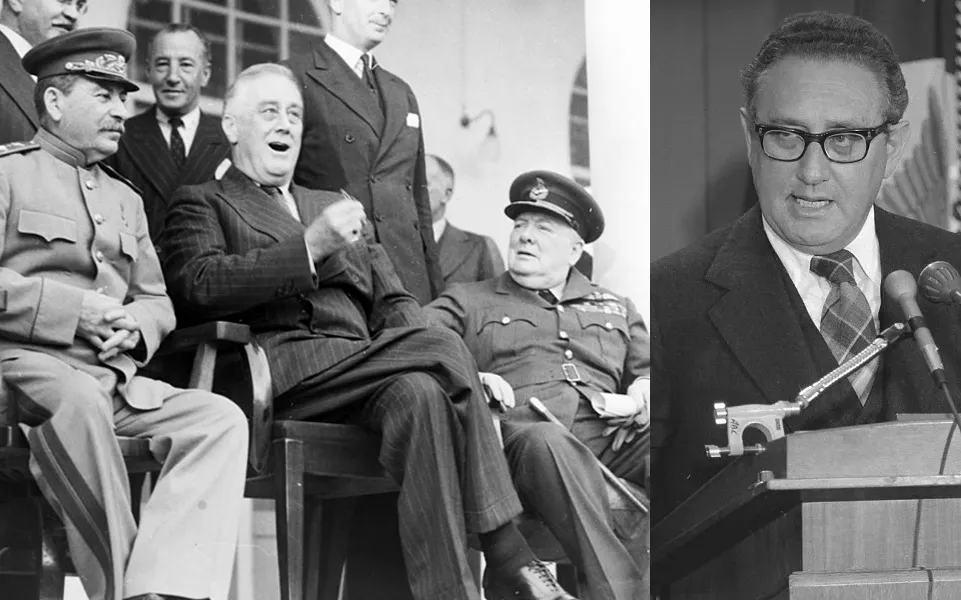

This is all very interesting and certainly there is a difference between financialised capitalism and industrial capitalism. However, from an ecological economics perspective, they are both unsustainable, tragically. Moreover, the BRICS are firmly grounded in neoliberal policies and rentier capitalism as well. So there is not really a solution there, regrettably. Moreover, when BRICS countries fail to address these rentier-extractivist structures, such as a stock market and an interest-based banking system, there is a real risk of escalating into the same kind of financialised capitalism that is now destroying the west. I would not be naïvely optimistic at this point. Now, I must say that my critical perspective on this has received attention from Chinese academia who selected my paper and invited me to a congress. I certainly have an open mind towards the possibilities for a transformative Global South. But we are far from there yet and things are not going well at this point. Let’s keep it real. https://jocrise.unida.gontor.ac.id/index.php/JOCRISE/article/view/34#:~:text=For%20epistemological%20clarity%20and%20clinical,%20criminological%20accuracy,%20global%20capitalism%20should